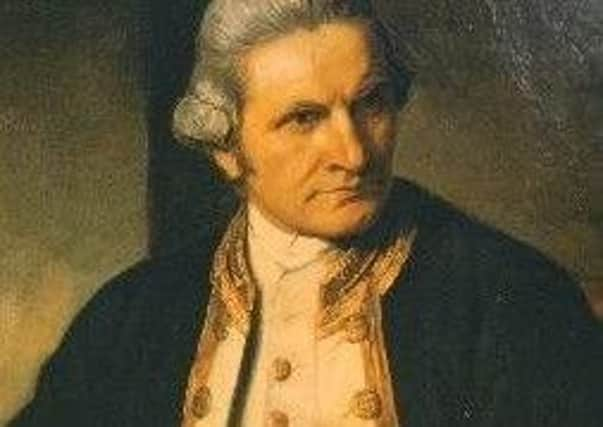Andrew Vine: Australia's rewriting of Captain Cook's past is a voyage into dangerous waters


They listened fascinated as their teacher told them how, nearly 250 years earlier, this son of Yorkshire had sailed out of the harbour below bound for strange, uncharted waters on a voyage of discovery.
It remains a story to stir the spirit of children and adults alike, and Whitby’s reverence for one of the most intrepid figures ever produced by Britain is no less than is due to Captain Cook.
Advertisement
Hide AdAdvertisement
Hide AdOn the other side of the world, though, rather less reverence is on display because Cook has become the emblem of a nasty and pernicious trend towards rewriting history to a politically-correct agenda.
According to the University of New South Wales, Cook is no longer one of the founding fathers of the prosperous and democratic Australia the world knows today, but a reprehensible colonial plunderer and thief.
Far from setting Australia on the road to civilisation when he landed at Botany Bay in 1770 and took the first steps towards settling a wild and untamed land, Cook apparently “invaded, occupied and colonised”.
Here was not a pioneer whose legacy is a proud part of Australia’s history, but a villain who stole lands from the Aborigines who had occupied them for 40,000 years.
Advertisement
Hide AdAdvertisement
Hide AdThat is the verdict of the university’s finest minds in a predictably revisionist “diversity teaching manual” in which the pre-occupation with not offending 21st Century cultural sensitivities trumps historical fact
What snivelling, right-on nonsense. How grievous an insult to the memory of one of Britain’s greatest maritime heroes, and to the memories of those who built on his legacy to create modern Australia.
But how emblematic of the growing fashion to bend and manipulate history so that it can be measured against the yardstick of political correctness.
This is a trend that has already taken root in Britain, as demonstrated by noisy student demands that a statue of Cecil Rhodes, who brought swathes of Africa under the control of the British Empire, be torn down at Oriel College, Oxford.
Advertisement
Hide AdAdvertisement
Hide AdOr the removal of a statue of a cockerel from its place at Jesus College, Cambridge, on the grounds that it was looted from Africa in the 19th century.
Or the growing calls for statues of Queen Victoria to be removed from their plinths because she epitomised the age of empire.
It seems lost on those clamouring for symbols of an earlier age to be banished from public sight that this sort of censorship is usually a hallmark of the most despotic regimes.
The destruction of ancient monuments in the Middle East by Daesh, the so-called Islamic State, is because they do not tally with its hateful world-view.
Advertisement
Hide AdAdvertisement
Hide AdStalin’s airbrushing of political opponents from photographs in the decades when he had his boot on the necks of millions living in fear sprang from the same instinct to redraw history.
And there is something very dictatorial about the tone of those who rage against symbols of empire. Only one view is acceptable – that it was a shameful era that must be universally condemned.
Dissent will not be tolerated. How Stalin would have approved of that. History is, of course, far more nuanced than such unbending absolutism. It is possible to regret the excesses of Rhodes’s actions in Africa while at the same time acknowledging the context in which they took place. It is simply not on to judge the events of the past against the mores and politically-correct standards held by some in the present, and to remove symbols of the age of empire is to deny and denigrate our history.
Far from fostering tolerance, this sort of outlook creates ignorance and prejudice.
Advertisement
Hide AdAdvertisement
Hide AdIf this deeply misguided movement succeeds in toppling statues of Rhodes and Queen Victoria, it is only a matter of time before it turns its fire on towering figures of the 20th century.
What of Churchill, who held some views that would make many wince, or of Thatcher? Banish them for the reactionaries they were, will be the cry. Perhaps the most worrying aspect of this urge to rewrite history is that the students who are driving it will one day become the teachers and guardians of fact.
And what then, when objectivity is lost and only a single, strictly-censored version of the past is acceptable?
Maybe in just a few years, a teacher will lead a party of children to Captain Cook’s monument in Whitby not to inspire them with a story of daring and discovery, but to encourage them to look up at him in loathing and condemnation.
How wrong that would be, and what a disservice to both Cook and the children steered into a narrow and prejudiced view of their country’s past.